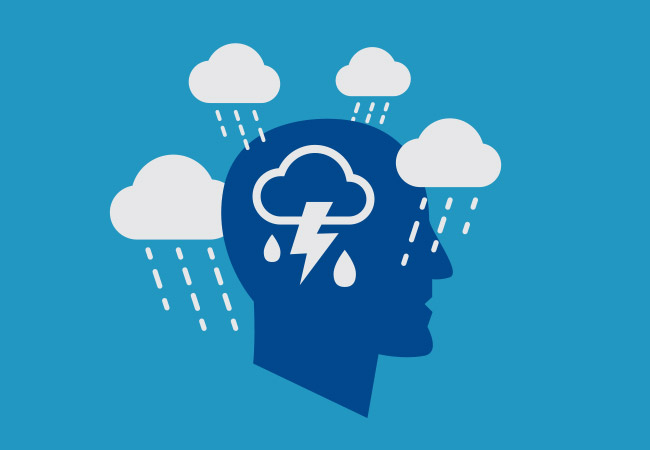Last Page Update 10/8/2018
Providing the Stress Management Support Your Deserve
Everyone has to deal with difficult people, whether they are argumentative, abusive, stubborn, or combative. The question is: how can you assert your rights without creating an unnecessary incident?
In most cases, angry people are screaming to be heard. They want to be valued, loved, and listened to. They want to feel important, but aren't able to express themselves constructively. With the right attitude, it's possible to get past these insecurities and reach an understanding. In this segment, we offer a range of approaches and tools to better assist you in managing your daily stress. Thank you for visiting this stress management segment.
First Published 09/2014
Updated 10.21.2019
Loneliness and Stress
By: Dr. Ashraf Girgis N.D.
 |
For the past few decades, loneliness and its effect on morbidity and mortality has
been a topic of interest for many researchers. According to John Cacioppo, a social
psychologist at the University of Chicago, (published Sep 15, 2014 on pubmed.com)
“the causal role of loneliness on neural mechanisms and mortality is difficult to test
conclusively in humans. Experimental studies show that social isolation produces
significant changes in brain structures and processes in adult social animals”.
Cacioppo and his colleagues studied the biological effects of loneliness and social
isolation and identified potentially unhealthy changes in various systems. These
include the immune, cardiovascular and nervous systems of chronically lonely people.
|
Being alone has also been identified by epidemiologic studies to increase risk of infection, heart disease, depression, shortened lifespan, and reduced quality of life in older people. (1) Overall, those who had scored high in loneliness and social isolations according to
the UCLA loneliness scale were found by Cacioppo and colleagues to exhibit the
following symptoms:
1. Because of physiological changes, the body is placed in state of alert
2. Higher level of stress hormones such as cortisol and epinephrine
3. High blood pressure
4. Overall elevated level of stress and activation of the sympathetic nervous
5. Poor sleep quality
|
 |
The study by Cacioppo et. al. in 2008 on 23 students found those who scored high
on the loneliness scale had less activation in the brains reward circuit (ventral striatum). The study was done using functional magnetic resonance imaging (FMI) to measure the brains metabolic activity(1.) Other researchers also looked at the link between depression and loneliness among 217 older adults of 65 years old and over. They found out that men scored high on the geriatric scale (GDS). Their
findings suggest that loss of professional identity and family and friends, combined
with lower physical mobility, affects their ability in building or maintaining
relationships. This combination can lead to depression. (3)
According to another study published in October 1993 in the American Journal of
Orthopsychiatry, there is a direct relationship between self-claimed loneliness,
depression, and stressful life events. Also, in a study done by UCLA, researchers
using a “loneliness scale” for men and women aged 47 to 59 stated:
“We conclude that loneliness is a psychological experience with potentially adverse
effects on biological stress processes that may be relevant to health”.
|
|

In another study on 106 individuals in Alameda County, CA, the scientists looked at all causes of death and this was their conclusion: “We find support for the contention that chronic loneliness significantly increases risk of mortality, but also find reason to believe that relatively recent changes in feelings of loneliness increases risk of mortality as well.” Clearly, loneliness has a negative effect on one’s health. Here is the loneliness scale according to UCLA. Loneliness, as the previous studies have mentioned, has been associated with many health risks, including an increase of cardiovascular diseases, stroke, and depression. Loneliness has also been linked to the impairing of cellular immunity and decreases the number of NKs (natural killer cells). Individuals with HIV who have reported loneliness and social isolation have had more symptoms of the disease than those who did not feel lonely. Cancer is also associated with chronic loneliness. Chronic loneliness, in short results in:
1) Increased blood pressure up to 30 points overtime
2) Increased Interleukin 6 levels (IL-6), according to the Framingham Heart study,
which can lead to heart diseases
3) Effects and possibly alters DNA, contributing to cancer
4) Decreased number of NK cells, leading to more infections and diseases
5) Increased cortisol levels, leading to stress, depression, anxiety, and sleep
Deprivation
|
|
|
Is loneliness bad?
Loneliness for short periods of time is not at all bad for you; it can actually be very positive. Many artists have found their talents thanks to loneliness--creativity can flourish during times of isolation as one tries to be alone to think and grow. Philosophers, Sufis, Buddhists, yogi masters, and many other spiritual leaders have found the answers to questions of humanity and spirituality by choosing to be isolated for a while. In fact, staying alone can help you to refocus and recharge your batteries and see things much more clear. Issues that are otherwise blurry due to distractions all around us. Solitude can also help us to learn about ourselves. Who are we? What is our purpose in this life? What direction are we heading in to? We can use loneliness to help develop spirituality. Reflection without interruption can help one find a light within ourselves, sometimes guiding us to totally new path, where we can find peace and happiness within.
|
 |
|
|
|

|
However, loneliness, despite some benefits, has become an epidemic in the United States. Divorces, kids moving out, and the growing population of seniors have all contributed to people feeling lonely. However, one needs to differentiate between being alone and being lonely; a person can be in a crowded space and still feel lonely. If you feel disconnected from others without a desire to be left alone, there are things you can do in order to not feel so isolated. These steps that can help:
1.The first step is to figure out what it is that you want. Do you simply enjoy having someone living with you? Do you miss someone to simply open up to and talk with? Or do you simply enjoy having a companion? Once you look deep inside and find out what you are looking for, then it will be easier to search for the solutions.
2. Depending on your first questions finding, the second most important step is to find out what is keeping you from reaching out to others. If reasons behind your loneliness is self-constructed, then you need to find out why, and how you can overcome these obstacles. For example, if you are young or old and feel lonely, is it because you feel lacking in self-confidence to approach people? Or are you afraid of rejection? You need to address these issues first.
|
|
|
|
If you lack self-confidence, ask yourself why. Same with being afraid of rejection, you need to ask yourself which is more important: living a happy, fulfilling life or a sad and lonely one? Being afraid of failure will bring you the latter. Remember, if you do not try, you have already failed. Trying gives you the possibility of success.
3. Join a religious organization. For many, getting involved in a religious organization (be it a church, a mosque, or a temple etc) is enough to fulfill their desire for companionship. This is not only because they can connect with like- minded people more easily, but it can provide a sense of spirituality that can overcome feelings of isolation and loneliness. Believing in a higher power on its own can bring sense of peacefulness within. If you have physical restrictions that limit you joining for prayers at your favorite organizations many have volunteers that can drive you or accommodate you in order to join for service activities. Also, consider asking your organizations what you can do to help. For example,there are families in need of a place to stay or in need of temporary housing. There are many venues in any religious organizations that can be tailor made and be a win-win forboth.
|
|
4. You can also volunteer and fill up your lonely hours. When we help others, we feel this great feeling of being positively connected to the world. If you are not a religious person, join a support group or any group that makes you feel connected to a cause. In American society today, there is no shortage of activities one can join. You can become a peace activist, or volunteer at your local school or neighborhood. Become a participant in a big brother or sister program or become a foster parent.
|
 |
|

|
5. The beauty of the internet is its connectedness. The debate is still out there about whether the internet and social networks are good or bad for us. I have written an article about how we can easily become addicted to the media that you can read here. Many people that are not able to drive or attend various social gatherings find the Internet to be their window to connecting with like minded others. So, dive in! The world is at your fingertips. But, be conscious of time you spend on the internet. Also, ask the question how satisfying or real is virtual communications. How does one know if they are who they say they are? Is it worth it to take the risk? If you feel the risk is acceptable and worth taking, then go for it.
|
|
6. Get a pet. Animals are amazing companions. Additionally, they demand commitment and you have to spend time taking care of them. This is especially true with dogs. Many dogs require every day walks, which is also a great way to exercise and be in nature, therefore, improving your overall health.
|
 |
|
|
|
If you don’t have time for animals, get indoor plants and talk to them. Believe it or not, studies done on plants show plants spoken to respond by growing faster. According to Rich Marini, PhD., a professor and Head of Horticulture in the College of Agricultural Sciences at Penn State, “Wind or vibration will induce changes in plant growth. Since sound is essentially vibration, my guess is that vibration is causing a response". So keep talking to your plant. Many plants also improve air quality which can also help with your overall health.Feel free to read my artcile about plant and keeping the air clean HERE.
Thanks for visiting www.curenaturally.org 
Ashraf Dirgis N.D.
|
References:
1.https://www.brianesty.com/bodywork/PDF/Lonliness.pdf
2. http://psychology.uchicago.edu
3.https://www.tandfonline.com/doi/abs/10.1080/00332747.1959.11023153?src=recsys
4)https://fetzer.org/sites/default/files/images/stories/pdf/selfmeasures/Self_Measures_for_Love_
and_Compassion_Research_LONELINESS_AND_INTERPERSONAL_PROBLEMS.pdf
5.https://news.psu.edu/story/141343/2008/08/25/research/probing-question-does-talking-plants-help-them-grow
5. https://www.psychalive.org/being-alone/
6. https://www.thespruce.com/should-you-talk-to-
7..http://www.psyneuen-
8.http://www.ncbi.nlm.nih.
9.https://www.brianesty.com/bodywork/PDF/Lonliness.pdf
|
|
Additional Articles
|
 Health: The Biology of Joy Health: The Biology of Joy
Read More
|

Research suggests marital stress can inflame lining of gut, allow bacteria into bloodstream
Read More
|

Let Us Keep The Air Clean Inside Our Homes
Read More
|
|
|
|

More Reasons to Meditate
Read More |

The Tell Tale Signs of Burnout ... Do You Have Them?
Read More
|
 Therapeutic effects of music Therapeutic effects of music
Read More
|
|
|
|
|